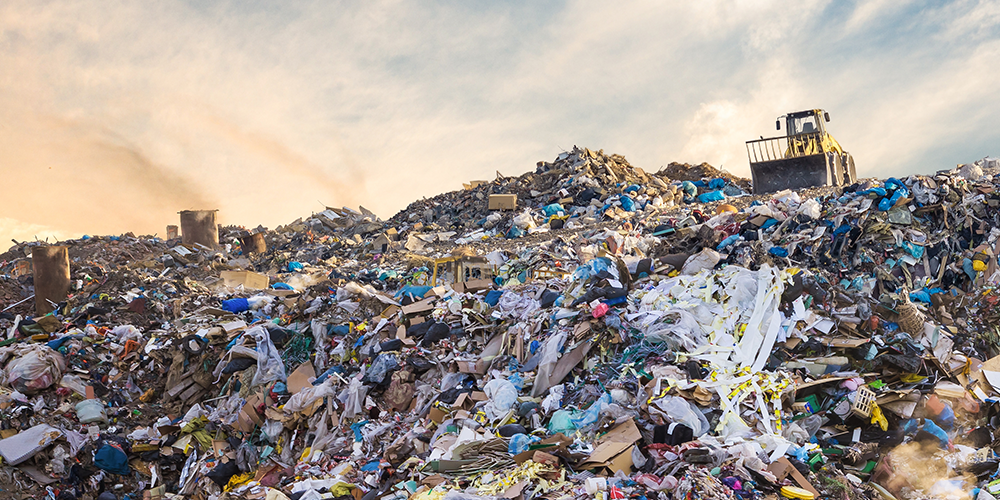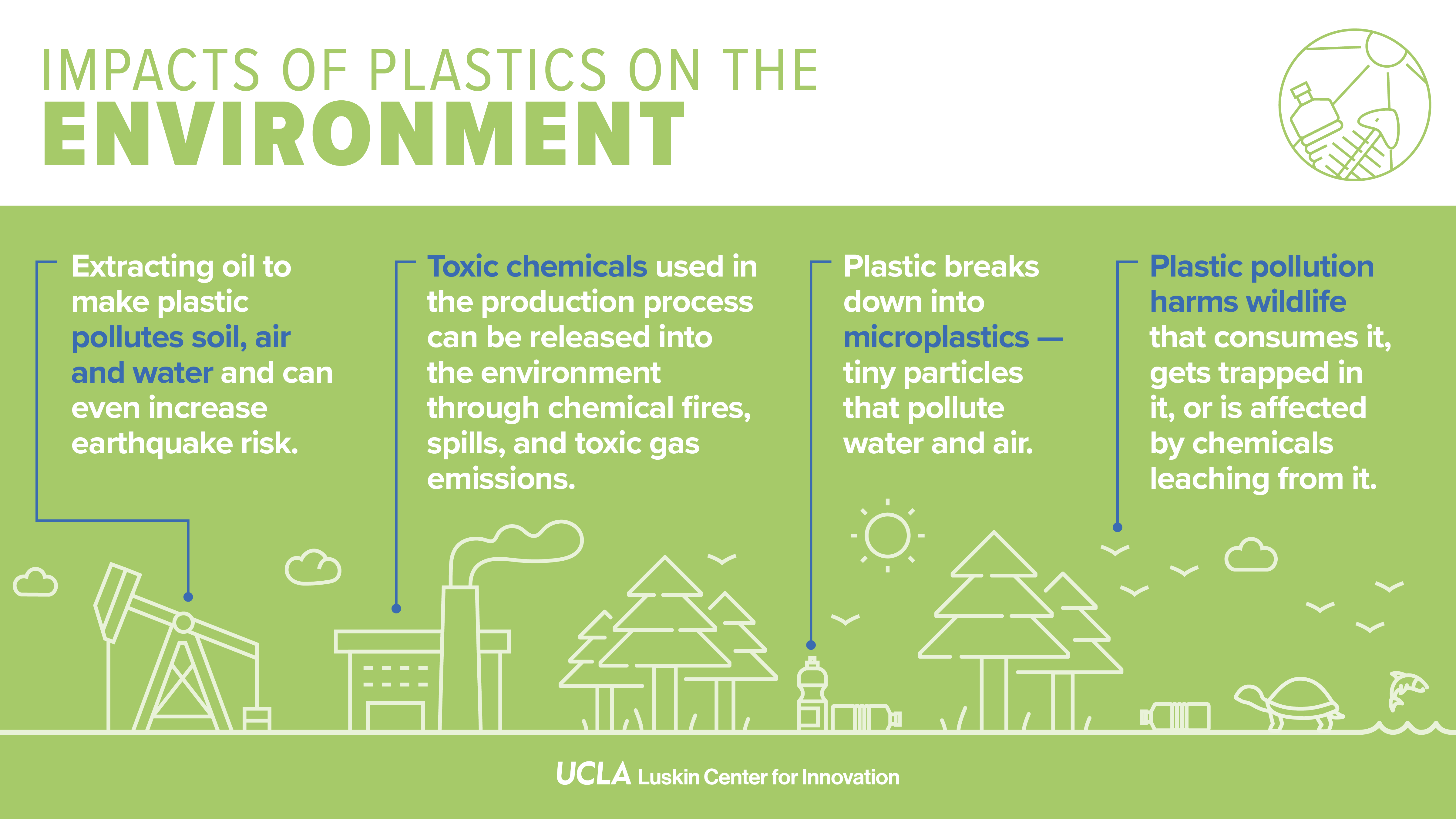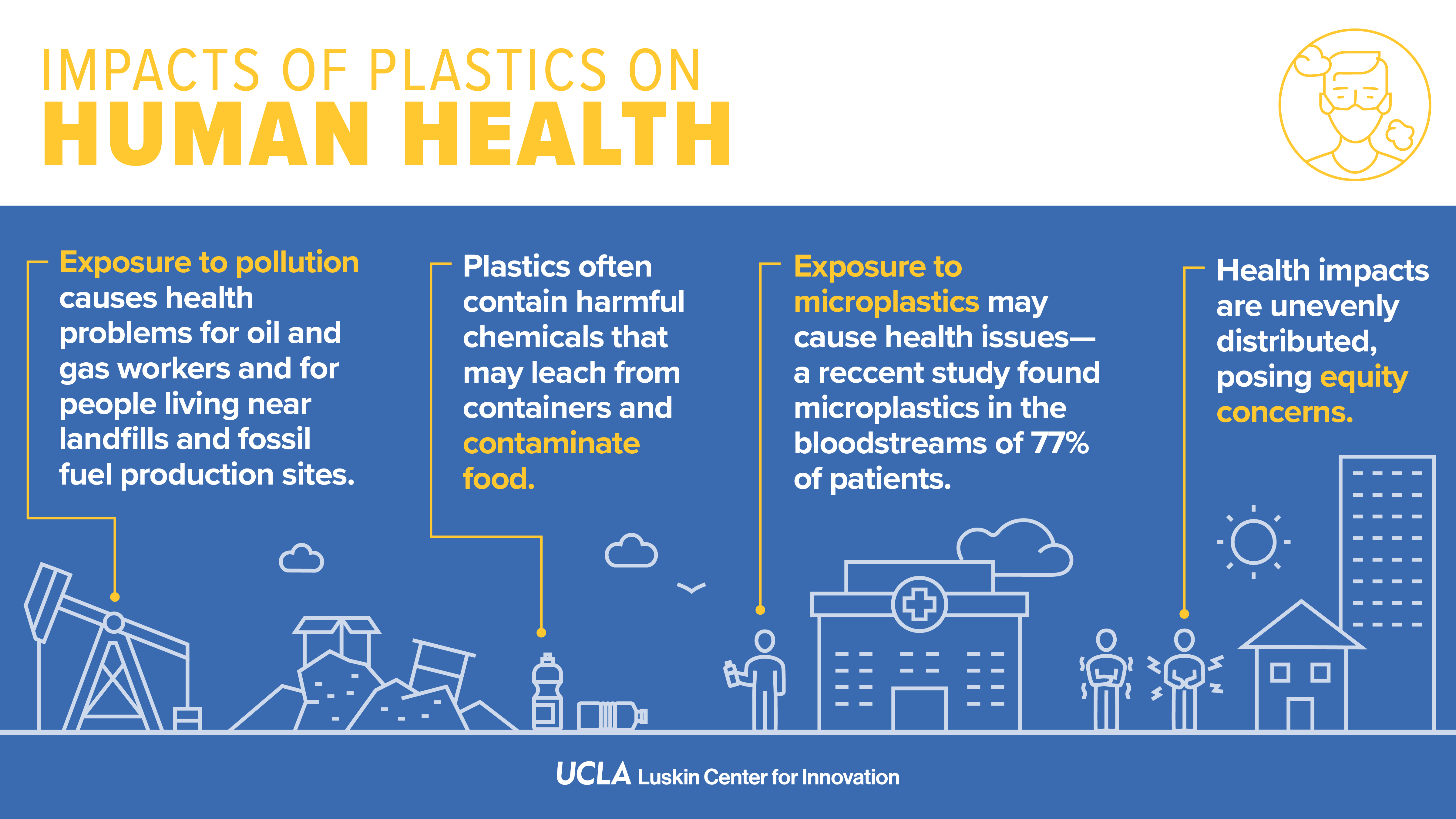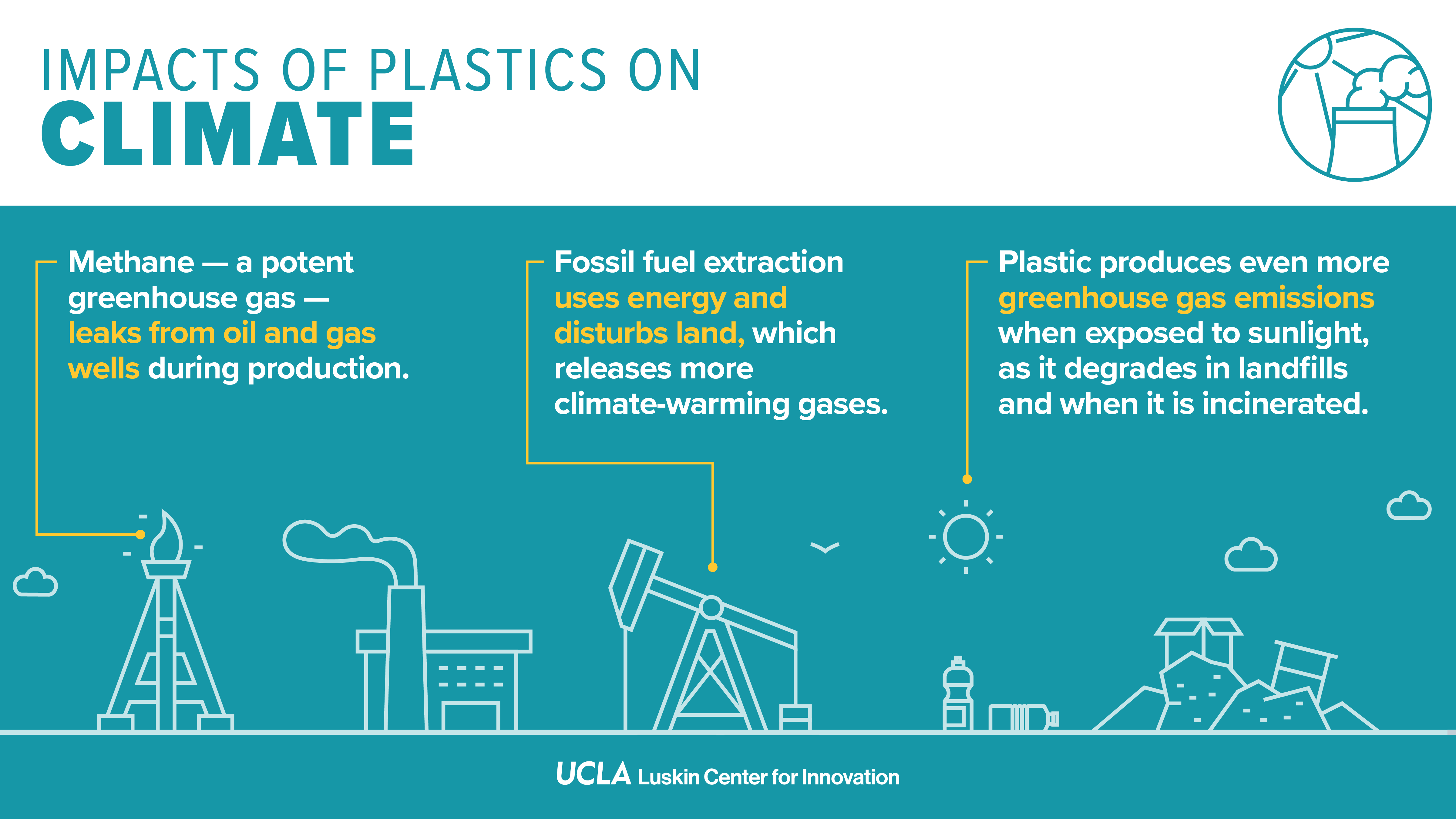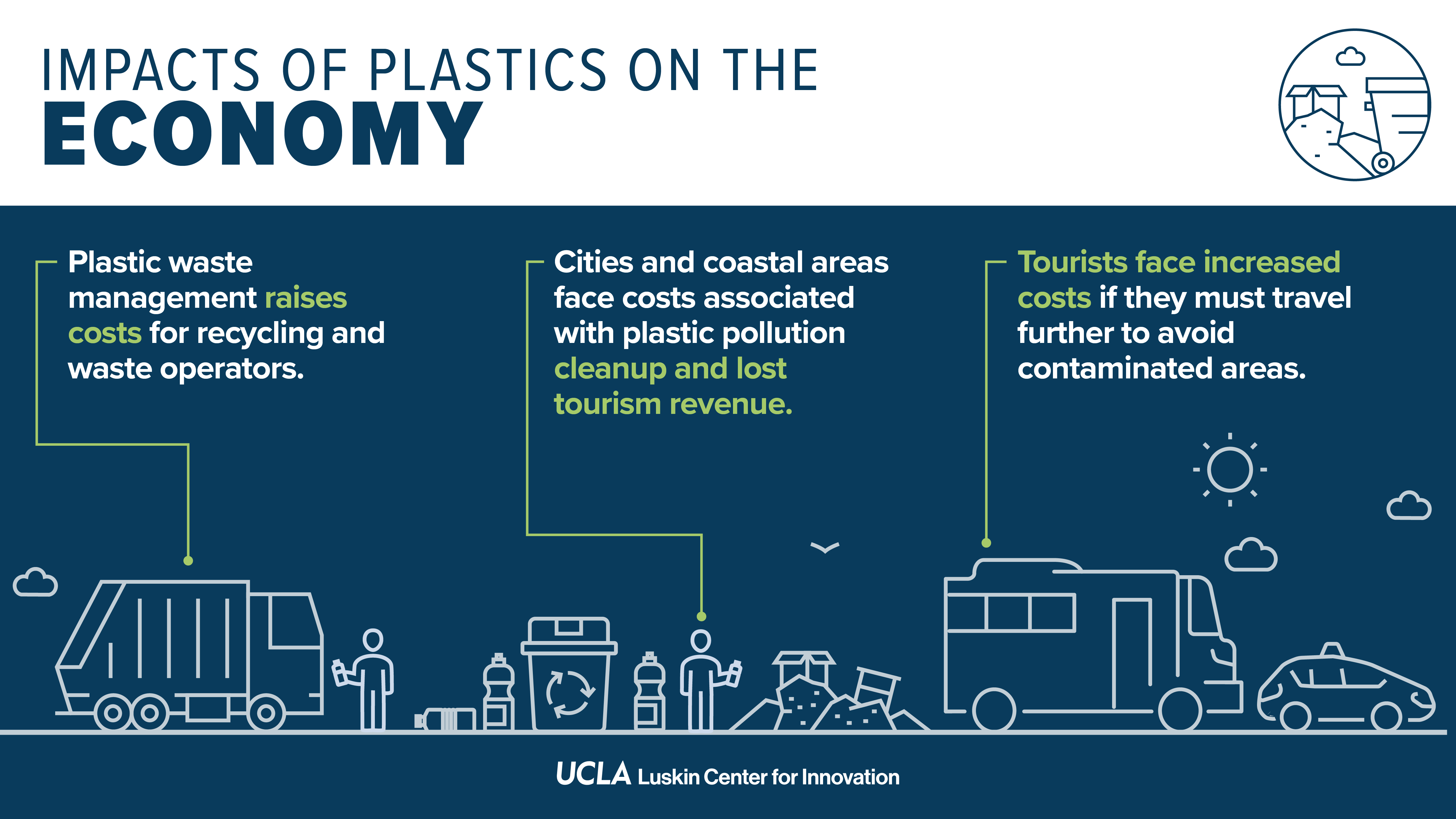Uncovering the Perils of Plastics
New analysis provides a comprehensive account of the health, economic and environmental harms associated with plastics
Globally, 90 percent of plastic is not recycled, and less than 1 percent of all the plastic ever created has been recycled more than once.
“It may surprise some people to learn how little plastic is recycled, and how much of it ultimately goes into the landfill or becomes litter,” said Daniel Coffee, project manager at the Luskin Center of Innovation. “From there, plastic doesn’t just harm wildlife—it damages our economy and our health, and it exacerbates climate change.”
A new report from the UCLA Luskin Center for Innovation examines and illustrates the wide-ranging Perils of Plastics, from oil production and plastic manufacturing to food contamination to problems with disposal. The study lays out the many harms of plastics.
Many of these harms are well-known—who has not heard the quintessential story of a sea creature caught in a six-pack ring or with a straw up its nose? But many of the impacts are less widely understood. Among the most important of these is that, because it is made from fossil fuels, plastic directly contributes to the widespread harms caused by global oil operations.
Following on our past research, which informed Los Angeles County’s recent plastic tableware restrictions, this new report elaborates on the damage done by plastics. It also expands our research statewide, where ongoing efforts by the office of State Senator Ben Allen and other legislators and stakeholder groups continue in the pursuit of comprehensive solutions.
- Harms caused by production and manufacturing: Plastic is made from oil, and extracting oil from underground creates many of the same hazards as extracting fossil fuels to generate energy, including greenhouse gas emissions and other pollution. Once the oil is extracted, transforming it into bags, bottles and other plastic goods can expose communities and workers to toxic chemicals that cause cancer and other harmful health conditions.
- Harms caused by eating and drinking from plastic: Many people know that eating and drinking from plastic can expose them to unhealthy contaminants. Particularly when food is hot or greasy, storing it in plastic or eating it from plastic take-out containers can leach harmful chemicals into the food. These chemicals, including styrene and BPA, cause a wide range of adverse health effects.
- Harms caused by plastic disposal: Plastic causes wide-ranging damage after it has been used and discarded. Whether it goes to the landfills, the incinerator, or the environment as litter, plastic nearly always causes climate, environmental, health, and economic damage to our society. As noted above, relatively little plastic is recycled—the best disposal option, but one that is highly imperfect and limited.
As California legislators consider policy changes to help mitigate the economic, health and environmental damage plastic causes, they can use this study as a guide. It will be essential for any policy strategy to address harms throughout the lifecycle of plastics, rather than focusing on any one stage of the process.
To learn more about the harm done by plastic, from oil extraction to landfill, read The Perils of Plastic: Tracking Environmental, Climate and Human Impacts.

